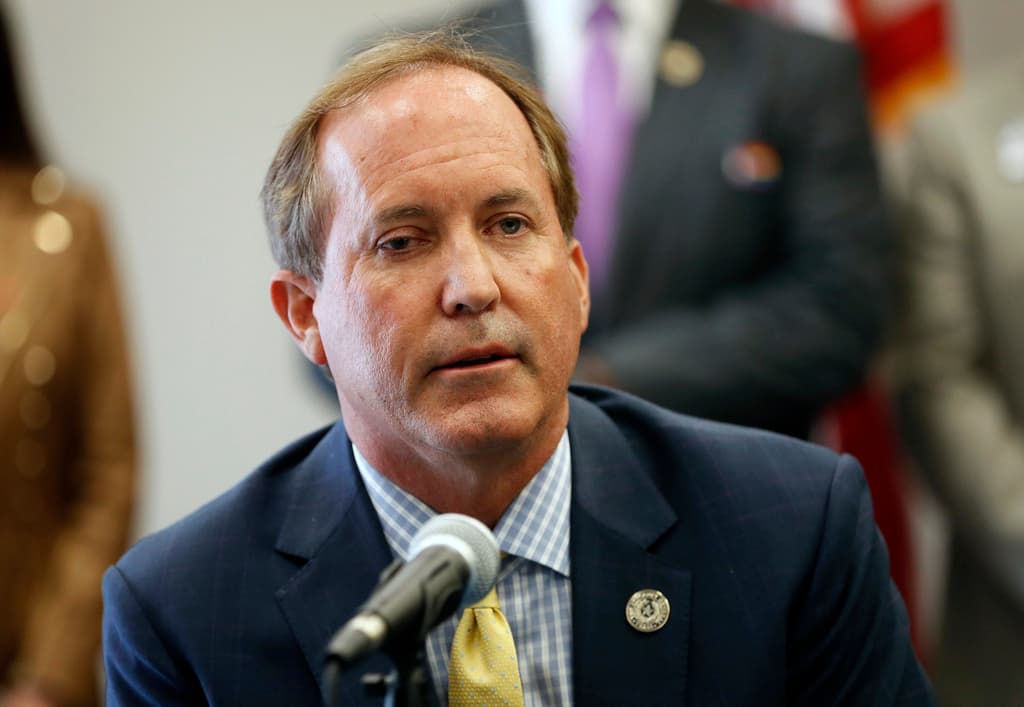Texas Attorney General Sues School District for Using Tax-Funded Resources To Influence Election Against School Choice
School administrators sent emails to staff encouraging them to flood the state’s open Republican primary and vote for a list of preferred candidates.

A school district in Texas is under fire from the state’s attorney general, Ken Paxton, who is suing it for engaging in illegal electioneering by using tax-funded resources to urge voting for anti-school choice candidates.
The lawsuit cites emails sent from two school principals who are also a married couple, Lindsay and Jesús Luján, who sent around a list of candidates to support and urged school staff to flood the state’s open Republican primary with votes against candidates who support school vouchers.
“Voting in Republican Primaries is especially important because the votes cast in primaries inform issues that the party will prioritize,” an email cited in the lawsuit, which was written by the principal of Borman Elementary school, Mr. Luján, says. “Historically, 85 percent of PRIMARY voters in TX want vouchers. That’s why it is so important that teachers and public school and funding advocates show up in the primaries.”
Texas has garnered attention for being a battleground state when it comes to school choice. The governor, Greg Abbott, has called four special legislative sessions on the issue but has been unable to pass an education savings account program, despite polls indicating widespread support among Texas voters for expanded parental choice.
Another email cited in the lawsuit was from the principal of the Alexander Elementary School, Ms. Luján. She urged staff to vote for certain candidates and noted that the district would not be able to “provide raises next year if legislation doesn’t change.”
“If Texas educators do not come together and vote on the candidate that will support public schools, we are in trouble. We cannot wait. Billions of $$ sitting there holding us hostage, for vouchers,” a quote from the district’s superintendent, Brian Bowman, says in the email.
Both emails were sent from school accounts and promised coverage for all employees to vote in the Republican primary.
Mr. Paxton has promised to “use every legal remedy” available to him to stop school districts from “influencing or coercing their employees to vote any particular way, especially when a district uses taxpayer resources and money to do so.”
“It is absolutely improper for publicly funded entities like school districts to engage in electioneering as Denton ISD has done,” Mr. Paxton said when announcing the lawsuit. “State law prohibits government officials — including school district personnel — from using either their positions of authority or taxpayer resources to influence the outcome of elections.”
The attorney general was prohibited by an appellate court decision from prosecuting election violations criminally, so he is pursuing the case as a civil lawsuit.
That means the next step is for the Denton County district attorney, Paul Johnson, to prosecute the case criminally, a senior fellow at the American Federation for Children, Corey DeAngelis, tells the Sun.
“It’s about time we hold school districts accountable for illegally influencing elections to prevent families from having choices,” Mr. DeAngelis tells the Sun. For a long time, schools have gotten away with illegal election interference to maintain public education as a monopoly, he says.
“The word on the street is that this kind of illegal activity has been happening in Texas for years without any consequences for school districts,” Mr. DeAngelis says, noting that Mr. Paxton is “getting things done and not playing around” since he sued the school district within a day of the emails first being reported.
A new tip line allows Texas teachers to submit anonymous tips about being coerced into voting for certain candidates or policies. Mr. Paxton’s office did not immediately respond when the Sun asked if it believed the electioneering issue was a wider issue in the state.
The election emails go beyond “usual special interest politics,” Mr. DeAngelis says, it’s “special interest greed combined with cheating the election system to protect themselves at the expense of children.”
Because Democrats can flood Republican primaries in Texas, it can skew legislative priorities — “this is partially how ‘Republicans’ who don’t support their own party platform of school choice can get into office and block education freedom,” Mr. DeAngelis says.
The district attorney’s office could not immediately be reached.
The Denton Independent School District did not respond to a request for comment. When the emails were first reported in Texas, the district told Texas Scorecard that it strives “to create a culture of routine voting and believe that participating in the democratic process is every citizen’s civic duty.”

